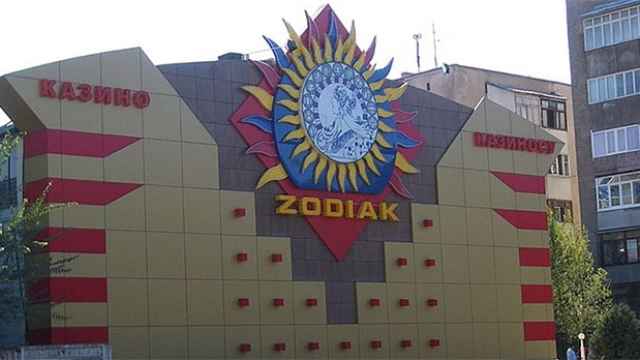Like the alcoholic prohibition in the United States, Kyrgyzstan's foray into prohibiting gambling didn't work out as expected. The government of Kyrgyzstan recently admitted as much, acknowledging a mea culpa on their gambling ban.
As a result, the Ministry of Economy has offered to return legalized gambling to at least bring the activity back into the spotlight. That way it can be monitored and regulated. However, the way the government plans to lift the ban has some people concerned. Leadership has said that they will welcome a foreigners-only structure with the hope that they'll get a foreign investment of about $200 million. The goal is that they'll become a central hub where foreigners come to play to give tourism a boost. But there appears to be a number of flaws in the logic.
"It's very positive news to hear that the government of Kyrgyzstan has come to the realization that it made a mistake in closing down the gaming industry," says? Storm International? CEO Darren Keane, who managed a successful casino in the capital of Bishkek from July 2009 until after the revolution in October 2010. "However, their new solution of a foreigners-only facility is another mistake".
The main concern now is that the new strategy still doesn't address the locals. As of right now, underground gambling has more than doubled since the government fully banned gambling. Creating a foreigners-only facility may in fact attract a foreign businessman or entity to invest, and ignite tourism, but it won't relieve any of the current problems with illegal gambling. On one hand, the government is trying to shield its own people from gambling but at the same time, the people are pushing back and saying that they'll find a way to do it — whether it's legal or not.
"Although the government believes that they will be protecting their own citizens by imposing a foreigner-only rule, this will still push the locals to find somewhere to play ?€“ possibly underground," says Keane, who notes that 90% of Storm's Bishkek casino was local business. "Of course, there will be many that will continue to just cross the border into Kazakhstan as they do now."
The government of the Central Asian country started banning gambling activities back in 2012 but installed a fully-encompassing restriction on gambling in 2015. The hope was that it would curtail all forms of gambling and steer people to spend their money in a different direction. However, what happened instead was that it merely paved the way for underground action, which is why the business of criminal/illegal gambling has skyrocketed within the year. Police have tried to crack down on it with numerous arrests and lawyers are prosecuting the criminals, but it's become fairly clear that gambling is like other vices: you can ban them but people will still find a way to get what they want.
And that's the conclusion that the government has come to as well. The Ministry of Economy has been on record as saying that while the law was made with good intentions to protect the vulnerable people, it has not led to the outright stoppage they were hoping for. They openly stated that they've failed to eliminate the underground casinos and crack down on the illegal market. In addition, the prohibition has in fact led to the loss of more than 500 million soms per year from the state budget. "Now they also understand the losses incurred from losing the taxes that casinos pay," added Keane.
Setting aside the illegal aspect of the business for a minute, the hit to the economy proved to be a sizable one. Instead of having a regulated industry where the government could track revenue and collect tax dollars like the system the British have put in place, the Kyrgyzstan government was left out in the cold as all sorts of underground casinos and gaming machine rooms were able to collect huge profits for themselves. The annual loss was estimated at $6.59 million, which is a significant amount of money for a country of six million people.
"There are the other benefits too," says Keane. "With a local casino, new jobs can be created and the taxes associated with them would benefit the government, as well as the many other fringe businesses that support casinos."
For now, the good news is that the government has made a step in the right direction to move towards legalized gambling. However, there needs to be a happy medium where the new regulations allow both locals and foreigners to play. The smart move would be to implement a system of checks and balances where the government monitors players and makes sure that age limits are restricted, that registration is set up and the whole activity is done in a manner that's socially responsible. That would be the best course of action for the local businesses. However, as history shows, sometimes we have to make mistakes before we can learn from them.

One of the closed casinos in Bishek, Zodiak.
A Message from The Moscow Times:
Dear readers,
We are facing unprecedented challenges. Russia's Prosecutor General's Office has designated The Moscow Times as an "undesirable" organization, criminalizing our work and putting our staff at risk of prosecution. This follows our earlier unjust labeling as a "foreign agent."
These actions are direct attempts to silence independent journalism in Russia. The authorities claim our work "discredits the decisions of the Russian leadership." We see things differently: we strive to provide accurate, unbiased reporting on Russia.
We, the journalists of The Moscow Times, refuse to be silenced. But to continue our work, we need your help.
Your support, no matter how small, makes a world of difference. If you can, please support us monthly starting from just $2. It's quick to set up, and every contribution makes a significant impact.
By supporting The Moscow Times, you're defending open, independent journalism in the face of repression. Thank you for standing with us.
Remind me later.

